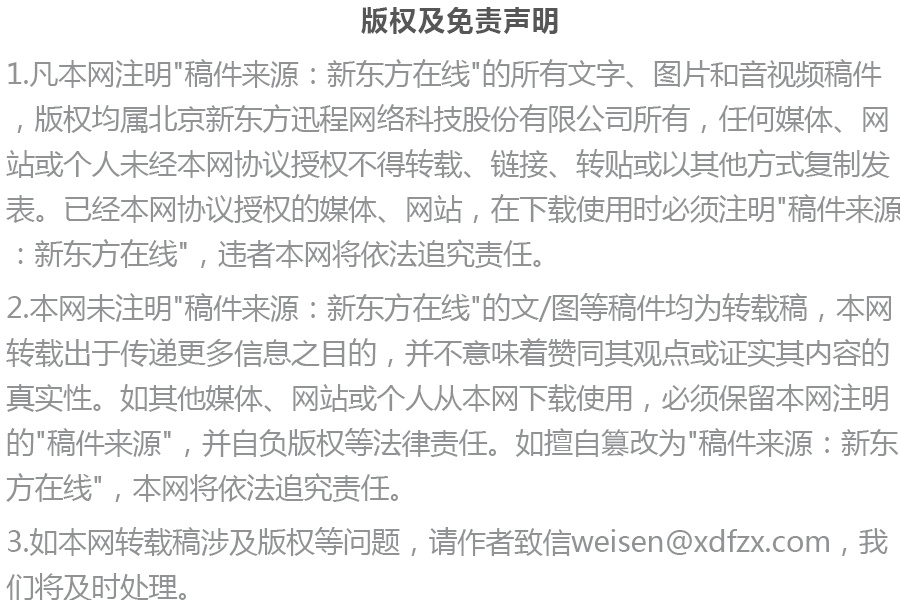2020.06.22 17:13
- [免费领取] 新东方初中期中重难点突破班
- [9.9元课程] 初中语数英物化五科特训班
- 【免费领取】 初中新学期必备学习资料
1.与有或没有形容词修饰的抽象名词前,表示具体一个“人或物”。
He received a good education.
Thank you, Jim. You have done a kindness.
Many people agreed that a knowledge of English is a must in international trade today.
The meeting held yesterday was a success.
To advise him is a waste of time.
2.偶尔与专有名词连用,表示某种特定意思。表示类似的一个或某一个(a certain)
a Mr Black a living Lei Feng
A Mr. Smith wants to see you.
3.与形容词最高级连用,表示强调,不表最高级。
The Huanghe River is a longest river in China.
The story is a most interesting one.
4.用在有形容词修饰的一日三餐、季节和日期前。
Before I go to work every morning, I’ve a light breakfast.
The traffic accident happened on a Sunday to the end of the July.
5.用于序数词前,表示“再一,又一”而不表顺序。
How important it is to learn a second language.
The fisherman cast a third net.
6.表示类别,有any, per之意,a(n)不必译成汉语,此时a(n)可改为the或不用冠词(但必须用名词复数形式)。
His income is one thousand yuan a month.
A camel is a useful animal. = Camels are useful animals.
7.不定冠词用于一些原来是动词的名词前。
Let’s have a look around the playground after supper.
have a rest / walk / swim / talk … (have = take)
give a shout / whistle / loud laugh …
make a drive / move …
8.用在同源宾语中。
Now we are living a happy life.
Last night I dream a terrible dream.

扫码预约一对一精华课
资深教师+1对1定制教学



